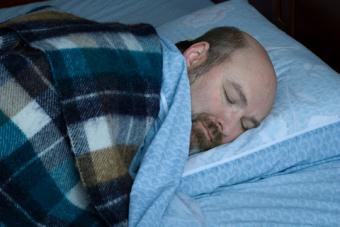
Bruxism is a common condition where a person clenches their jaw or grinds their teeth together. For a person who has sleep bruxism, it is usually not a major problem, but when complications arise, they can be painful and debilitating. Because of this, it is important to know some of the symptoms and understand the condition in order to decide whether treatment is necessary or not.
Understanding Sleep Bruxism
For the most part, people who have bruxism will usually not need any form of treatment. It's when the disorder leads to additional complications with the teeth or jaw that help is necessary. Even though the problem is usually mild, if it is more severe it can lead to the following conditions:
- Jaw disorders and pain
- Damaged teeth
- Hot, cold, or sweet sensitivity in the teeth
- Serious dental problems, such as needing crowns, bridges, root canals, tooth implants, or even dentures
- Painful joint conditions, such as temporomandibular joint problems (TMJ)
- Enlarged jaw muscles
- Earache due to overuse of the jaw muscles
- Chewed tissue on the inside of the cheek
- Headaches
- Insomnia
One of the other complications of sleep bruxism may be developing an eating disorder, as it might be difficult or painful to chew food. If this is a possibility, be sure to talk to your doctor or dentist and get help early.
Why Do People Clench Their Teeth?
During sleep the jaw might grind or clench for a number of reasons, but there is no definite cause that has been identified. The grinding or clicking motion may be a subtle form of self-comfort due to stress or even due to uneven teeth or an abnormal bite. There could even be suppressed anger, aggression, frustration that has built up. The reasons could also include more serious underlying issues, such as symptoms of anxiety or depression.
Teeth Grinding Treatment
You'll want to seek treatment if you notice pain in your jaw or teeth, you have increased tooth sensitivity, or if you're keeping other people awake due to grinding. Depending on the cause and severity, you might need to talk to your dentist, doctor, or even visit a physical therapist or counselor. At the least, be sure to get regular treatment from your dentist and bring up any other concerns.
Here are some additional tips to help end sleep bruxism:
- Talk to your doctor: Make an effort to identify the underlying cases. Some people also find temporary relief from taking a prescription muscle relaxer.
- Visit your dentist: There are mouth guards and splints you can wear over your jaw. Getting your teeth in proper alignment can also help the problem.
- Seek help for depression and anxiety: These problems can make jaw clenching worse and will also severely impact your mental health.
- Avoid caffeine consumption: Try drinking herbal tea or warm milk before bed, which will also promote relaxation and reduce stress, and avoid drinking alcohol.
- Avoid grinding your teeth during the day and before bed: You can do this by holding a warm washcloth against your jaw or touching your tongue to the roof of your mouth as an alternative.
- Do not chew on any objects: This includes gum, pen lids, or anything else that is not food. The constantly chewing action will make you more likely to teeth grind.
Get Treatment Early
As with any problem or sleep disorder, if you are concerned, be sure to seek help from your doctor.







